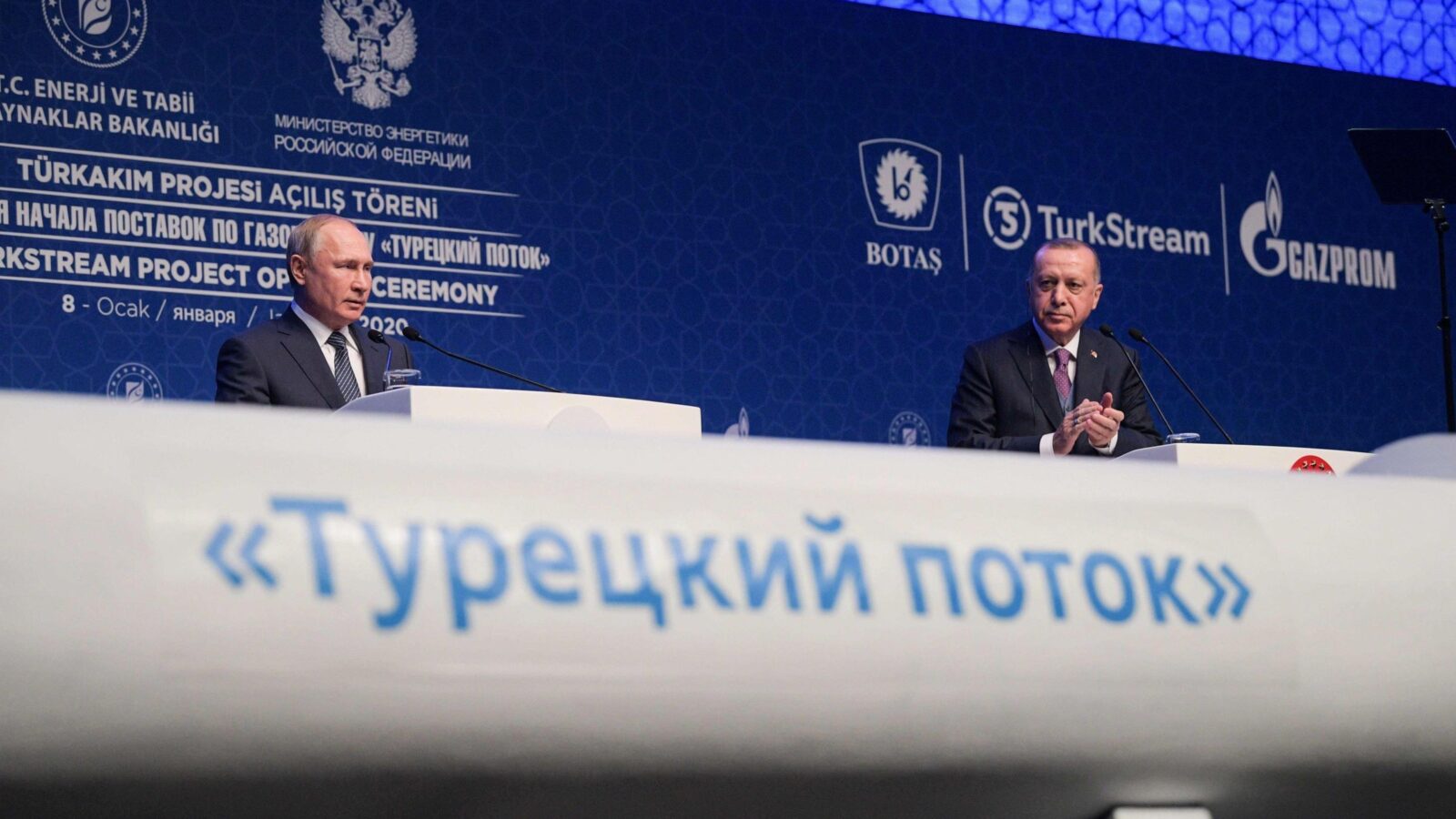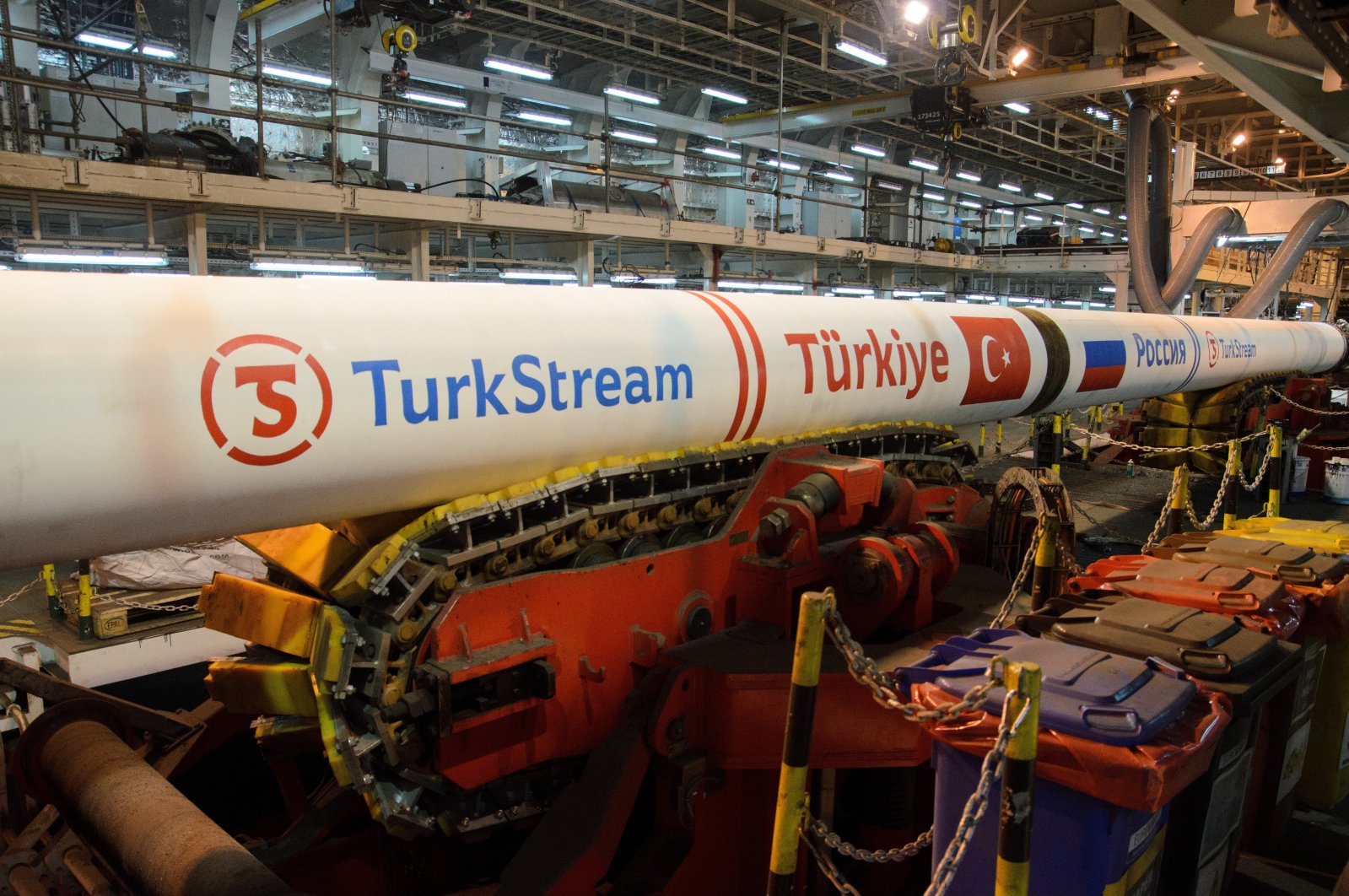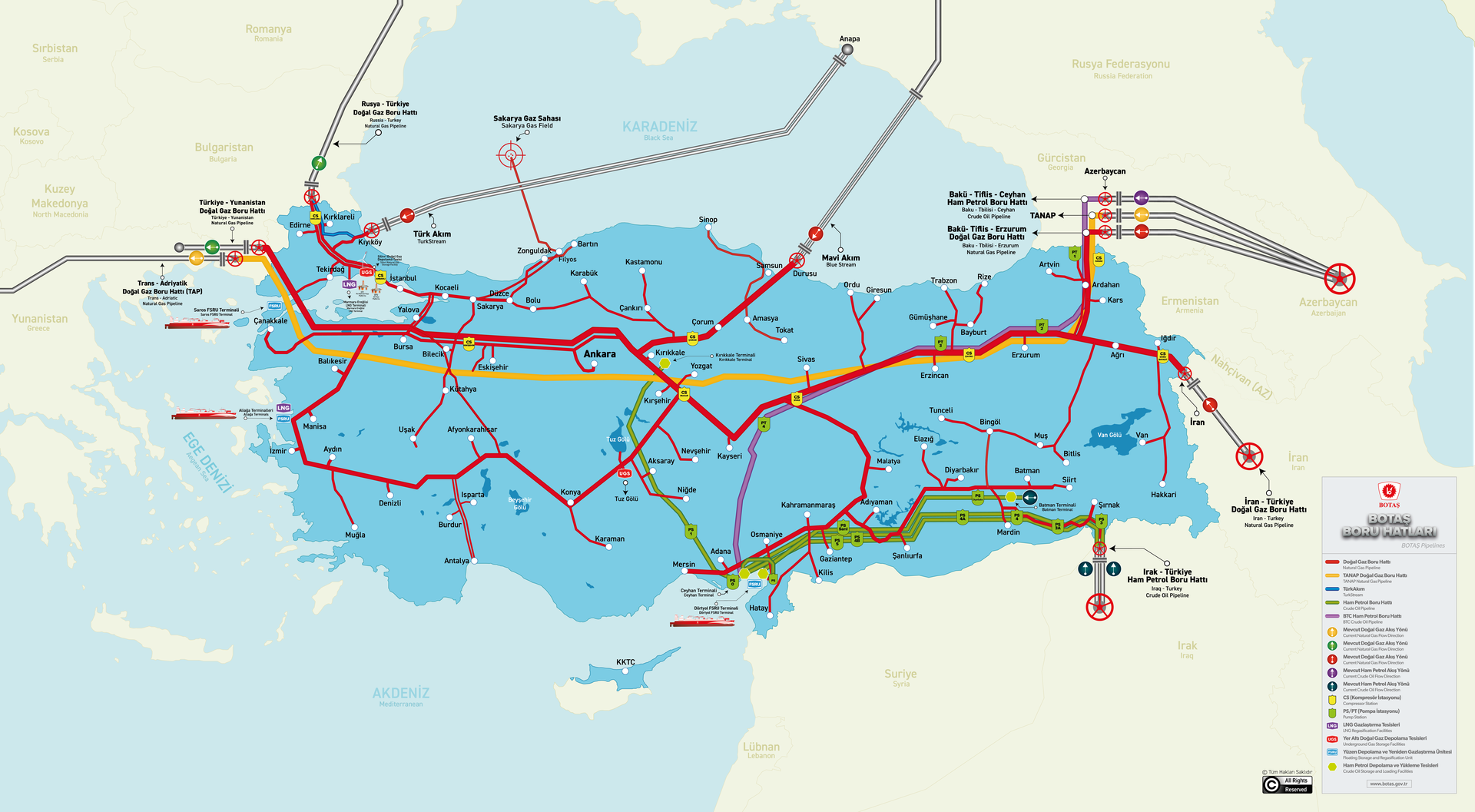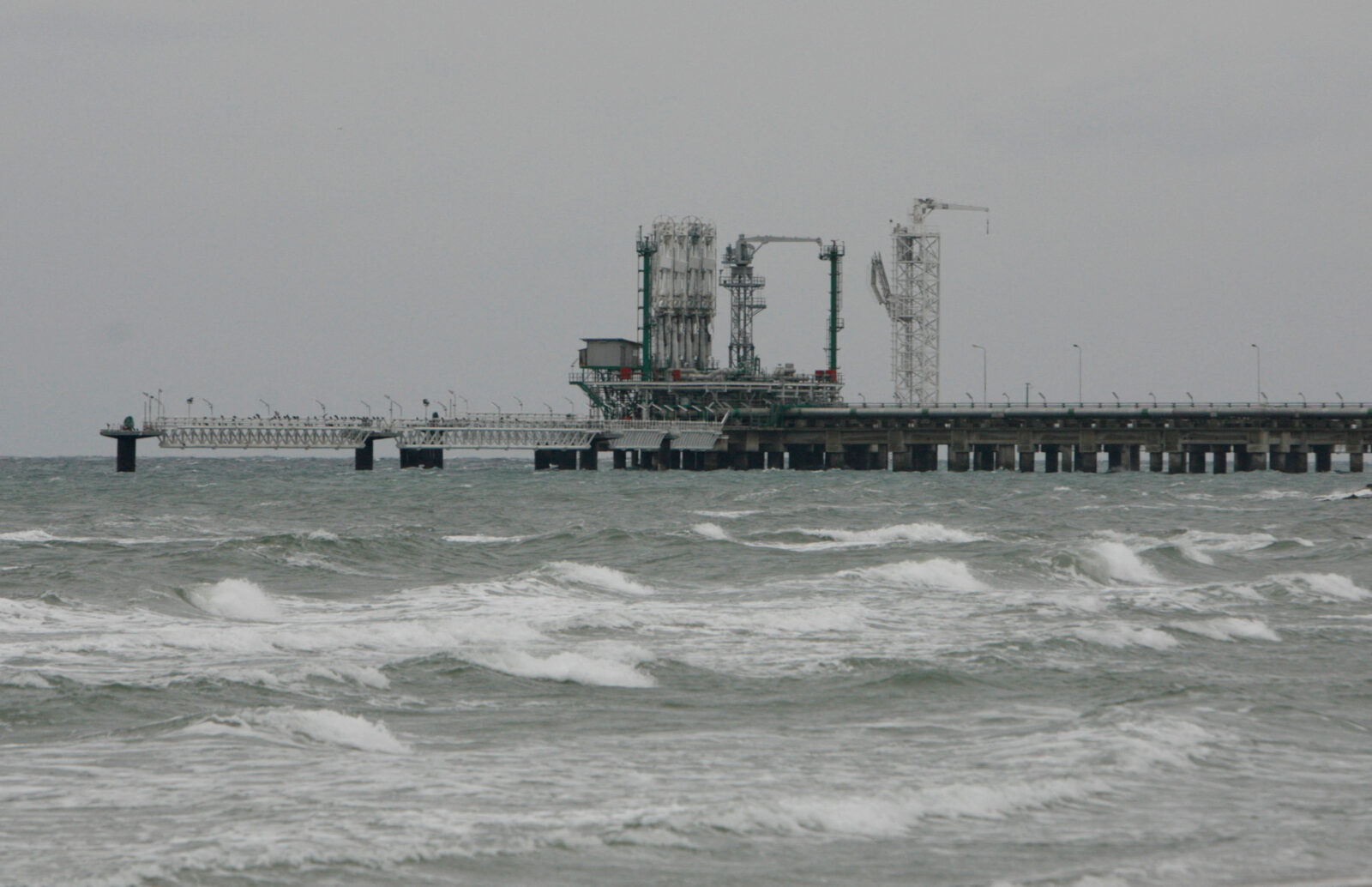
Following Russia's suspension of gas deliveries to Europe via Ukraine, the possibility of Türkiye as a new route has come to the agenda.
State energy company BOTAS' former General ManagerGokhan Yardim,speaking to Türkiye Today, said: "The expiration and non-renewal of the contract for transporting Russian gas via the pipeline through Ukraine have brought forward the possibility of transporting 15 billion cubic meters of gas annually through TurkStream."
"The gas previously transported via Ukraine supplied countries including Slovakia, Hungary, Austria, the Czech Republic, and even Italy. When it became clear in 2024 that this agreement would not be renewed, countries other than Slovakia and Hungary, primarily Germany and others in Western and Southern Europe, began developing alternative gas supply options. Hungary turned to TurkStream, while Croatia attempted to extend the Ukraine transit agreement. However, the failure to renew the agreement left Croatia in a difficult position."

Speaking about the current pipeline routes that are actively supplying Russian natural gas to Europe, Yardim said, "By 2025, TurkStream remains the only pipeline route supplying Russian natural gas to Europe through Türkiye. Of the two pipelines, each with a capacity of 15.75 billion cubic meters running under the Black Sea, one serves Türkiye's domestic needs, while the other is used for transit to Bulgaria via the Strandzha station."
"After Türkiye, the pipeline, known as the Balkan route, carries gas through Bulgaria and Serbia to Hungary. Both Serbia and Hungary currently receive Russian gas through this route. There is also a pipeline connection between Hungary and Slovakia, and if gas supplies can be arranged through this route, Russian gas can be traded across Central Europe via Slovakia," he added.

Saying that Türkiye can enable the transit of Rusian gas to the Balkans and further into Europe through the second line of TurkStream, Yardim stated, "Additionally, the pipeline serving Türkiye's domestic needs is not currently operating at full capacity. Thanks to LNG terminals, Türkiye can enable the transit of more Russian gas to the Balkans and further into Europe through the second line of TurkStream. However, the key question remains: who will purchase Russian gas in this scenario?"
"For this reason, once Russian gas arrives in Türkiye, it must be nationalized, mixed with other gas supplies, priced on Energy Exchange Istanbul (EXIST/EPIAS), and then exported by buyers. An equivalent volume to domestic Black Sea production could be exported without European objections," he added.
"This is a challenging, long-term process that demands patience but also a healthy approach. Türkiye should utilize the dynamism and creativity of the private sector in this process," he said.

Telling that there's another option to continue the Russian gas supplies to Europe, Yardim, "Another option is to continue with the current arrangement, where BOTAS handles part of the exports, while the other pipeline remains under Russian contract-based control. Additionally, the unused capacity in BOTAS' line could also be utilized." said. "However, the fundamental question remains: who will negotiate with Russia under current geopolitical conditions?" he added.
"The undeniable fact is that Türkiye, as a reliable transit country, continues to serve Russian gas as it does with Azerbaijani gas," Yardim stated.
"However, energy experts advocate for Türkiye not merely to act as a corridor but to evolve into a regional trading hub equipped with advanced pipeline infrastructure and LNG terminals. By involving the private sector and utilizing EPIAS effectively, Türkiye could become a significant energy trade center for the region," he concluded.

Türkiye cannot replace the natural gas supplies halted by Russia via Ukraine due to technical and capacity constraints, former BOTAS Gas Procurement Department Head and energy expert Ali Arif Akturk told CNBC-e.
Akturk emphasized that the TurkStream 2 pipeline, which carries Russian gas to Türkiye and onward to Europe, is already operating at full capacity, leaving no room for additional volumes.
Akturk explained to CNBC-e that the halted Ukrainian transit agreement, which expired on Jan. 1, had facilitated the flow of approximately 15 billion cubic meters of gas annually. These supplies primarily supported Hungary, Slovakia and parts of Austria.
"TurkStream 2 is already running at maximum capacity, and it's technically impossible for Türkiye to substitute the volumes previously delivered via Ukraine," Akturk said. He stressed that Central European countries relying on Ukrainian transit routes are likely to be most affected by this disruption.
"While LNG deliveries offer some relief, they cannot match the scale of gas previously transported through Ukrainian pipelines due to infrastructure constraints," Akturk told CNBC-e. "Europe entered November with underground gas storage levels at 95%, but this has already dropped to around 80% due to increased winter demand," he added.

Akturk also addressed Türkiye's gas agreement with Bulgaria, noting that while LNG supplies are being delivered via the Marmara Ereglisi terminal, the volumes remain insufficient to address the shortfall left by the halted Ukrainian transit.
"There might be some minor relief during spring and summer months, but in winter, Türkiye's LNG infrastructure operates at full capacity to meet domestic needs," he said.
Akturk concluded by emphasizing that Türkiye cannot technically or logistically serve as an alternative transit route for the halted gas supplies via Ukraine, leaving Central European countries in a challenging position.